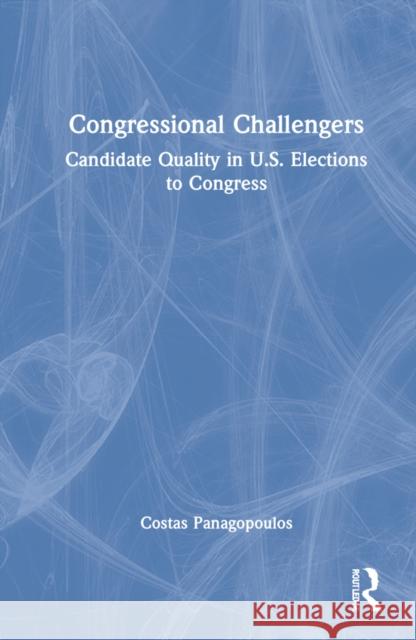Congressional Challengers: Candidate Quality in U.S. Elections to Congress » książka
Congressional Challengers: Candidate Quality in U.S. Elections to Congress
ISBN-13: 9781138057876 / Angielski / Twarda / 2021 / 134 str.
Congressional Challengers: Candidate Quality in U.S. Elections to Congress
ISBN-13: 9781138057876 / Angielski / Twarda / 2021 / 134 str.
(netto: 606,39 VAT: 5%)
Najniższa cena z 30 dni: 579,30
ok. 22 dni roboczych.
Darmowa dostawa!
Over the past few decades, near-universal reelection of congressional incumbents in the United States has spawned scholarly interest in, as well as public concern about, the potential for erosion of competition and representation. When the deck seems to be stacked in favor of one set of candidates relative to another, the integrity of the democratic process is threatened. A central finding that has emerged in scholarly studies is that who wins elections often depends on who runs. As the inimitable congressional scholar Gary Jacobson has put it, "you can't beat somebody with nobody." In this book, Costas Panagopoulos examines patterns of candidate emergence in congressional elections over the past four decades - specifically, the quality of challengers who seek to unseat U.S. House incumbents, as measured by prior political experience. Panagopoulos demonstrates that fewer and fewer experienced challengers have tossed their hats into the ring since the early 1970s. Inexperienced candidates face an electoral liability that is difficult to overcome. Looking at factors including campaign spending, district-level partisan composition, and institutional reforms such as term limits, Panagopoulos assesses reasons and consequences for this development over time. He points to important implications for the study of congressional elections and democracy in the United States, including reforms in recruitment and candidate selection strategies to heighten electoral competition and ultimately, to enhance democratic representation in Congress.











